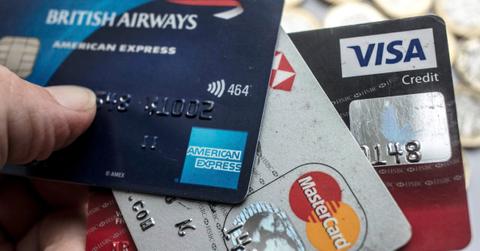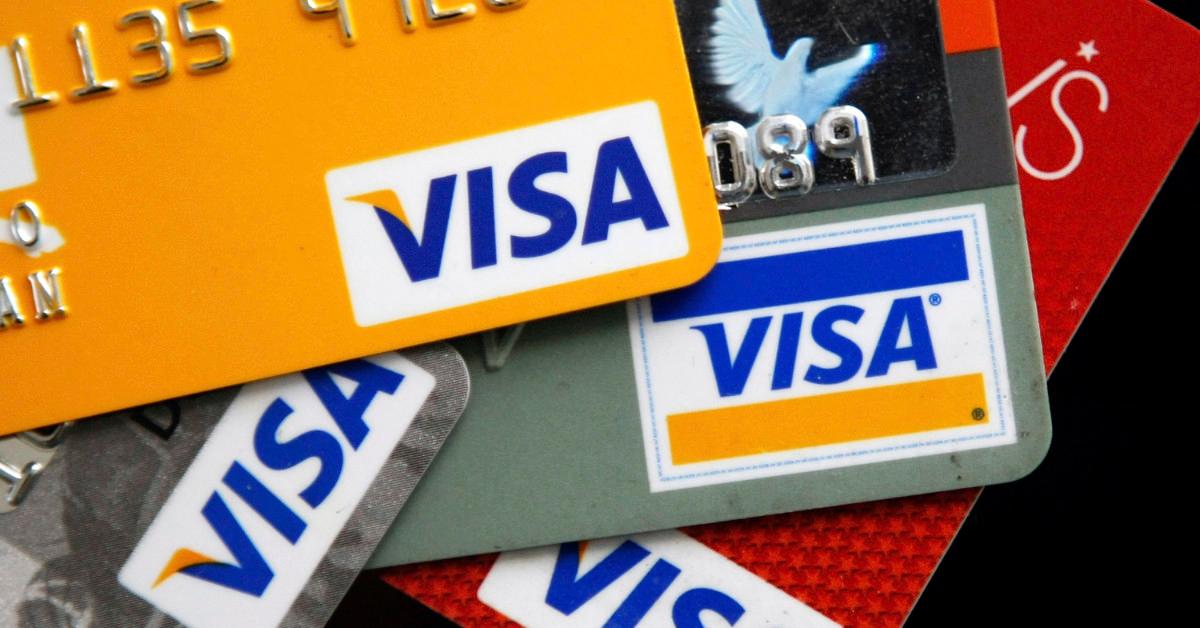How to Pay Taxes With a Credit Card, Watch Out for the Fees
Can taxes be paid with a credit card? Yes, the IRS accepts credit card payments, but taxpayers should know about the processing fees.
April 28 2021, Published 8:06 a.m. ET

With the (postponed) tax deadline approaching, you might like to know that you can pay taxes with a credit card through the IRS website, although that convenience will cost you.
According to the website, the IRS uses third-party payment processors to handle federal income tax payments by debit and credit card, and the process is safe and secure.
The IRS lists three processors—PayUSAtax, Pay1040, and ACI Payments, Inc.—all of which have different fees and a different list of accepted payment methods.
All three processors accept Visa, Mastercard, Discover, American Express, STAR, Pulse, NYCE, and Click to Pay (with Visa, Masterpass). PayUSAtax accepts Accel and PayPal, while ACI Payments accepts cash payments through PayNearMe.
Processing fees are a big drawback to paying by credit card.

Here are the fees:
- PayUSAtax charges $2.55 for debit card payments and 1.96 percent (with a minimum of $2.69) for credit card payments.
- Pay1040 charges $2.58 for payments by consumer or personal debit card, 1.99 percent (with a minimum of $2.58) for payments by other debit cards, and 1.99 percent (with a minimum of $2.58) for credit card payments.
- ACI Payments charges $2.00 for debit card payments of $1,000 or less, $3.95 for higher debit card payments, and 1.99 percent (with a minimum of $2.50) for credit card payments.
Since the credit card fee is a percentage, it can be considerably costlier to pay by credit card than by debit card. A $2,500 payment through PayUSAtax, for example, would incur a $2.55 fee if paid by debit card but a $49 fee if paid by credit card.
The IRS notes that you can pay online or over the phone with these processors, but the agency does warn that there are certain maximums for the number of allowable card payments and that special requirements might apply to card payments of $100,000 or more.
Other drawbacks to paying taxes by credit card, according to CNBC, include interest charges and credit utilization increases. If you use a credit card to pay for your taxes but can’t afford to pay off the balance in full by the following due date, the credit card company will apply interest charges. If you use a credit card for a high tax payment, the resulting spike in your credit utilization rate—the ratio of your total credit card balance to your total available credit—could bring down your credit score.
Credit card rewards might make it worth it.
However, it isn't all bad news. If your credit card comes with rewards, you could earn money or other benefits by paying for your taxes with that card. You just have to make sure the rewards give you more than the processing fee takes away.
As CNBC points out, the Citi Double Cash Card offers 1 percent cash back on purchases and another 1 percent on those purchases after you pay your bill. So, with a 1.87 percent processing fee, you would earn 0.13 percent on tax payments with that card, which works out to $1.30 for a $1,000 payment. Not much, but not nothing!
Plus, tax payments can go a long way toward earning a credit card’s welcome bonus. Credit card companies dole out these bonuses after you use your card and spend a certain amount. Many times, the bonuses are worth more than the processing fee.
